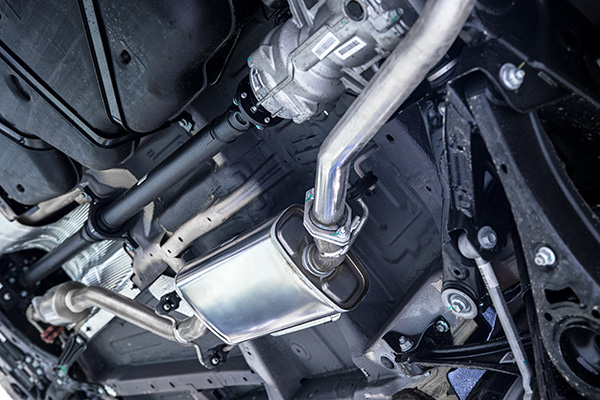
Your exhaust manifold plays a vital role in your vehicle’s performance, fuel efficiency, and emissions control. It collects exhaust gases from the engine’s cylinders and channels them through the exhaust system to be safely expelled. When a leak develops in the manifold or its gasket, it can lead to a host of problems — some loud, some subtle, and all worth paying attention to.
Spotting the signs of an exhaust manifold leak early helps you avoid more costly damage to the engine, the catalytic converter, and surrounding components. If you’ve noticed strange noises, smells, or engine changes, it’s worth taking a closer look.
What Causes an Exhaust Manifold Leak
The exhaust manifold is constantly exposed to extreme heat and pressure. Over time, this can cause the metal to warp, crack, or break at the welds or flanges. The gasket that seals the manifold to the engine block can also wear out or fail from repeated expansion and contraction due to temperature changes.
Corrosion is another common issue, especially in vehicles driven in humid or coastal areas. Moisture and salt can eat away at the metal, leading to rust and weakening the manifold over time.
Loose or broken bolts are another culprit. When fasteners lose tension or snap, gaps form between the manifold and the cylinder head, allowing exhaust gases to escape.
How to Recognize the Early Symptoms
Manifold leaks often start small. At first, they may only be noticeable under certain conditions, like cold starts or hard acceleration. But even early-stage leaks can affect your engine’s performance and fuel economy.
Here are several symptoms that could point to an exhaust manifold issue:
Ticking or Tapping Sound from the Engine Bay
One of the most common signs of a manifold leak is a ticking noise that rises and falls with engine speed. It often sounds like a rhythmic clicking or tapping, especially when the engine is cold. As the metal heats up and expands, the gap may close slightly, and the noise may fade. That doesn’t mean the problem has gone away, but it has been temporarily masked.
Poor Acceleration or Power Loss
Leaking exhaust gases can affect the engine’s backpressure, which impacts efficiency and combustion. You may notice sluggish acceleration or a general drop in power, especially at lower speeds or under load.
Burning Smell or Heat Under the Hood
Exhaust leaks can release hot gases near other engine components, which may lead to a burnt smell. If the leak is near wires or plastic covers, it could cause visible smoke or heat damage. This is especially risky if the leak is close to wiring harnesses or sensors.
Decreased Fuel Efficiency
Your engine relies on accurate air-to-fuel ratios to run properly. A leaking exhaust manifold can disrupt sensor readings, leading to inefficient combustion. Over time, you may notice you’re filling up more often than usual.
Exhaust Odors in the Cabin
If you smell exhaust fumes inside the vehicle, that’s a red flag. Exhaust leaks near the front of the car can let gases seep into the cabin through vents or the firewall. In addition to being unpleasant, this can be dangerous if fumes contain high levels of carbon monoxide.
Why You Shouldn’t Ignore a Small Leak
Even a minor manifold leak can have serious consequences if left unchecked. Escaping gases can damage nearby engine parts, overheat wires, or lead to premature failure of oxygen sensors and the catalytic converter. In some cases, hot exhaust gases can even ignite nearby materials under the hood.
As the leak gets worse, the noise will increase, performance will drop, and the repair will likely become more expensive. It’s always better to address the issue while it’s still small and manageable.
Diagnosing and Repairing the Problem
Confirming an exhaust manifold leak often requires a hands-on inspection. A visual check might reveal carbon soot around the manifold or gasket, which indicates escaping gases. Mechanics may also use a smoke test or listen closely with specialized tools to pinpoint the leak.
In many cases, replacing a gasket or tightening a bolt solves the problem. But if the manifold is cracked, warped, or heavily corroded, it may need to be replaced entirely. It’s also important to check the condition of studs, bolts, and related sensors during the repair.
Exhaust System Repairs in Virginia Beach, VA
At Napa BP in Virginia Beach, VA, we diagnose and repair exhaust manifold leaks before they cause greater damage. Whether you’ve noticed unusual noises, smells, or engine issues, our technicians will find the root cause and fix it with precision. Don’t ignore the signs of a leak — stop by Napa BP and keep your vehicle running quiet, clean, and safe.